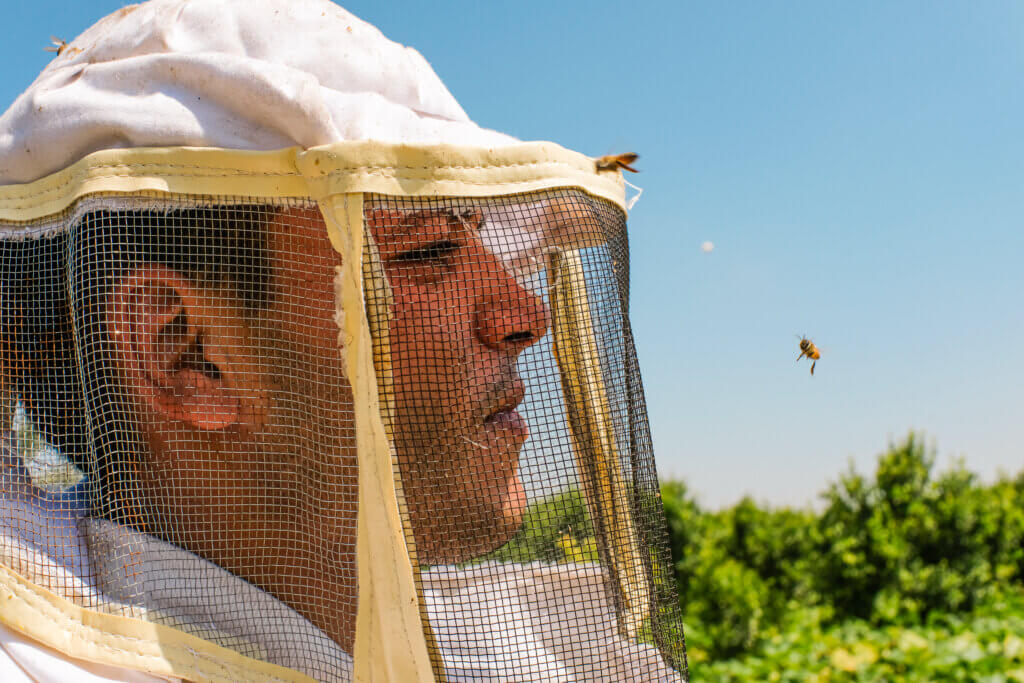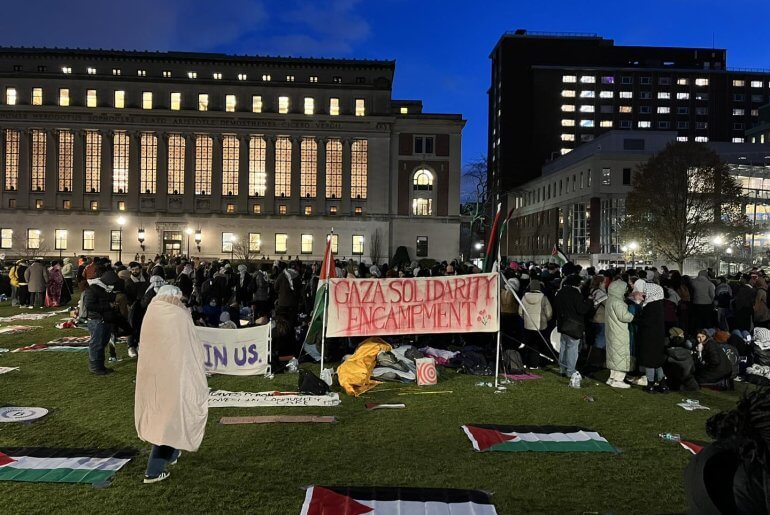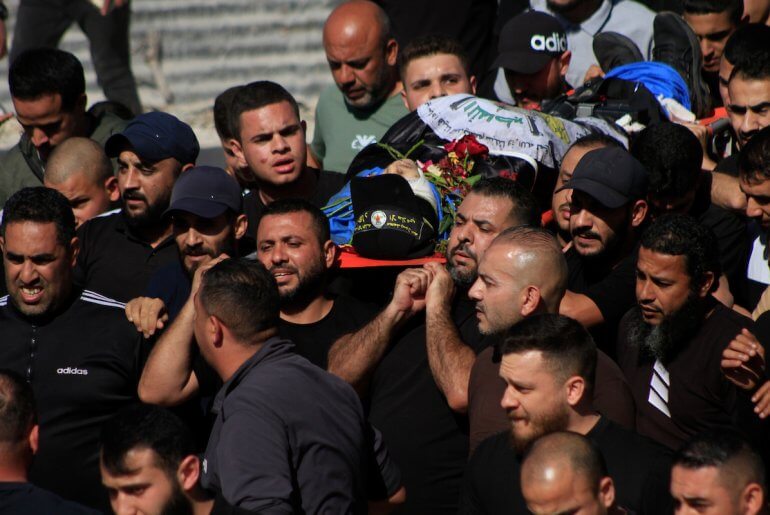A story not of statistics and numbers and economics, this is a story about the generational transfer of skill. It’s about a small farming family that attempts to subsist off of a land only 1,000 feet from a highly-militarized racist separation wall.

Ancient traditions. On a farm situated right at the very northernmost border separating Gaza from the Israeli Occupation, stood in front of me a family. Munir Al-Kafarne, the 44-year-old father, sat down on his chair in a tiny naturally-lit room near their farm, his eyes watching every move of his four children, the eldest Ayoob, Foaad, Mohammad, and Amjad, ensuring everything gets done with quality and precision.
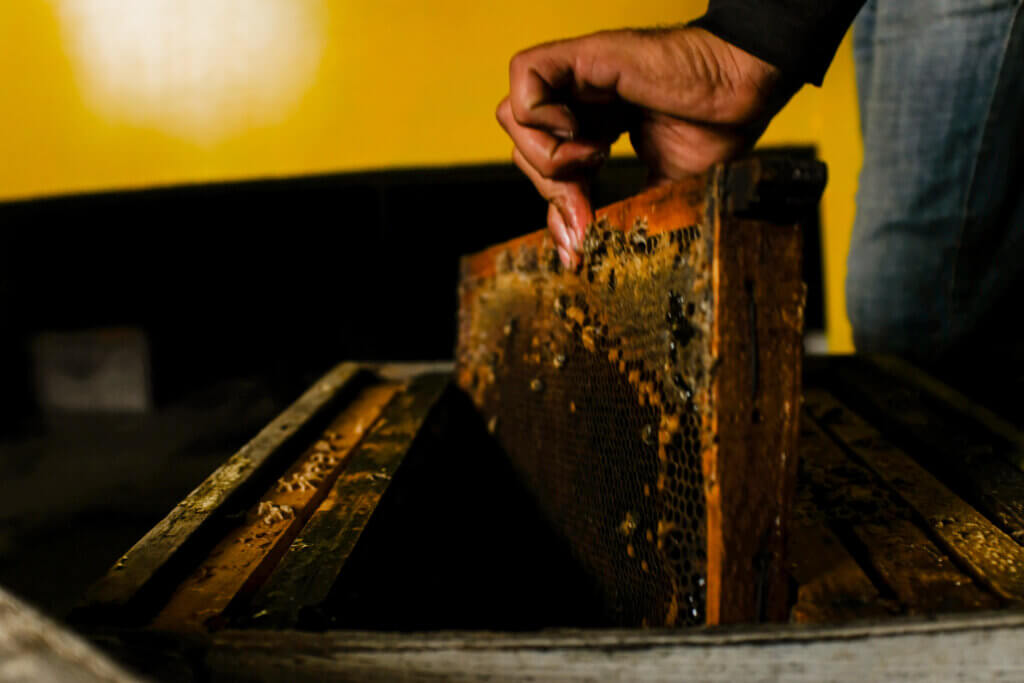
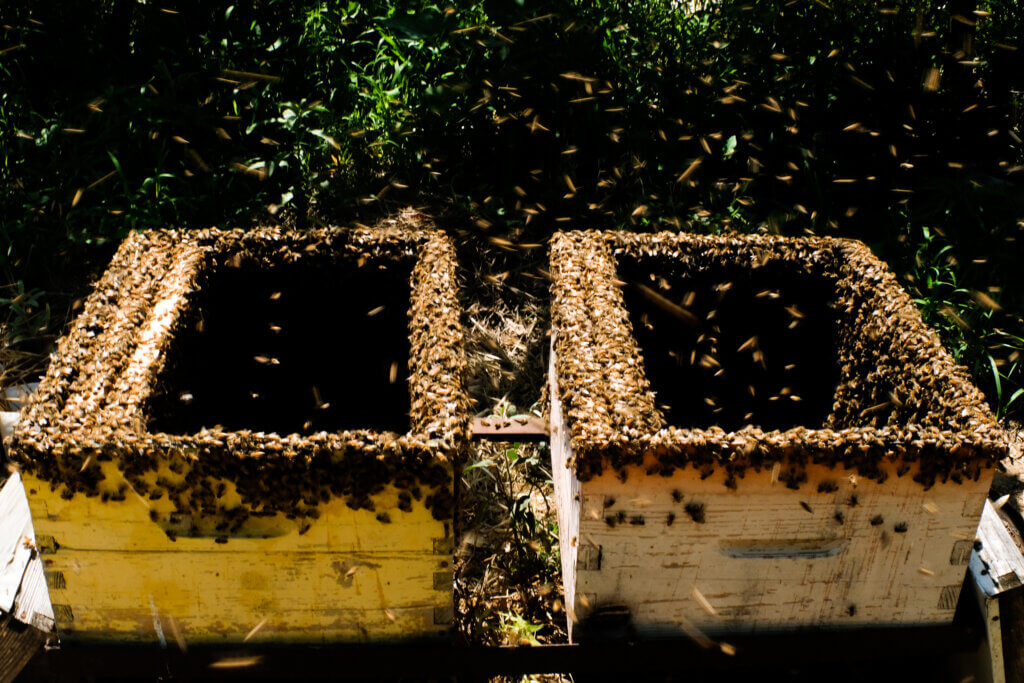
In front me stood the man, passing down an invaluable trade, a respectable profession, a necessary skill, and land, for his children to inherit. They live life in its simplest form, farmers with a land who subsist entirely off of their own hard labor. The land is their life, the same land that exists only a thousand feet from the militarized border.


Foaad, the second oldest son of the watchful father, was disciplining his younger brother Amjad, about his work ethic. Abu Nasser, a close friend of theirs who lends them a helping hand at their farm reinforces the generational transfer of skill, reminding the young one that everything he does now, is for him to reap later.

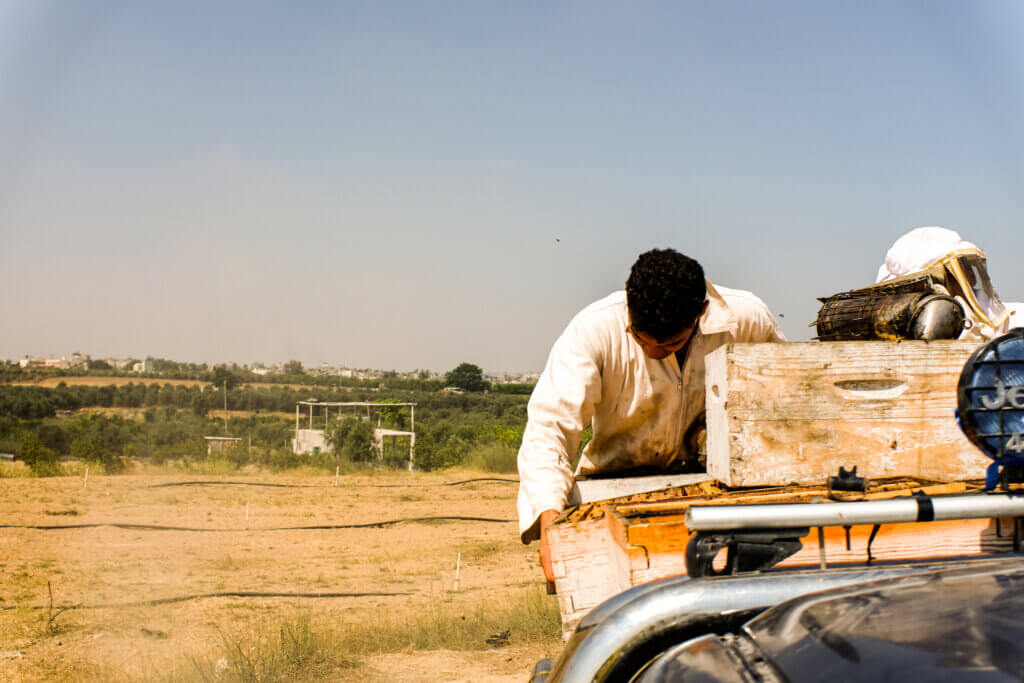
The Al-Kafarne family has always been farmers. In 2000 this specific farm was purchased; in it they grow vegetables and a few assortment of citrus trees in order to make ends meet. Once harvested and packaged, the honey is sold both locally in Beit Hanoun, and in Gaza City, for 80 shekels per jar. The Al-Kafarne family make whatever income they can from their little farm despite the lack of funding and the reality of the siege.
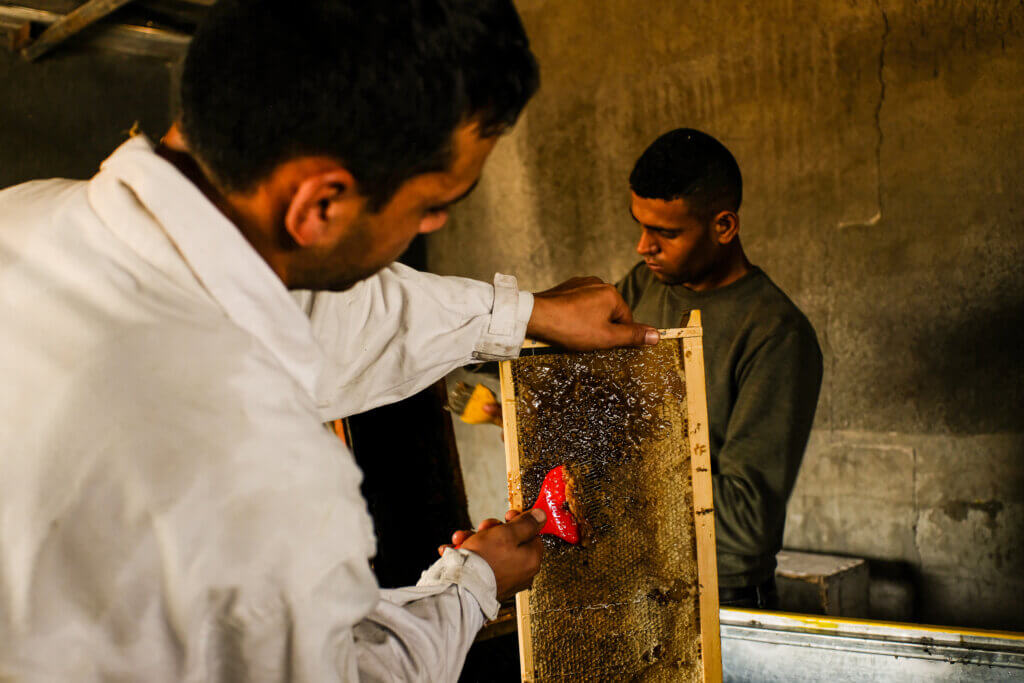

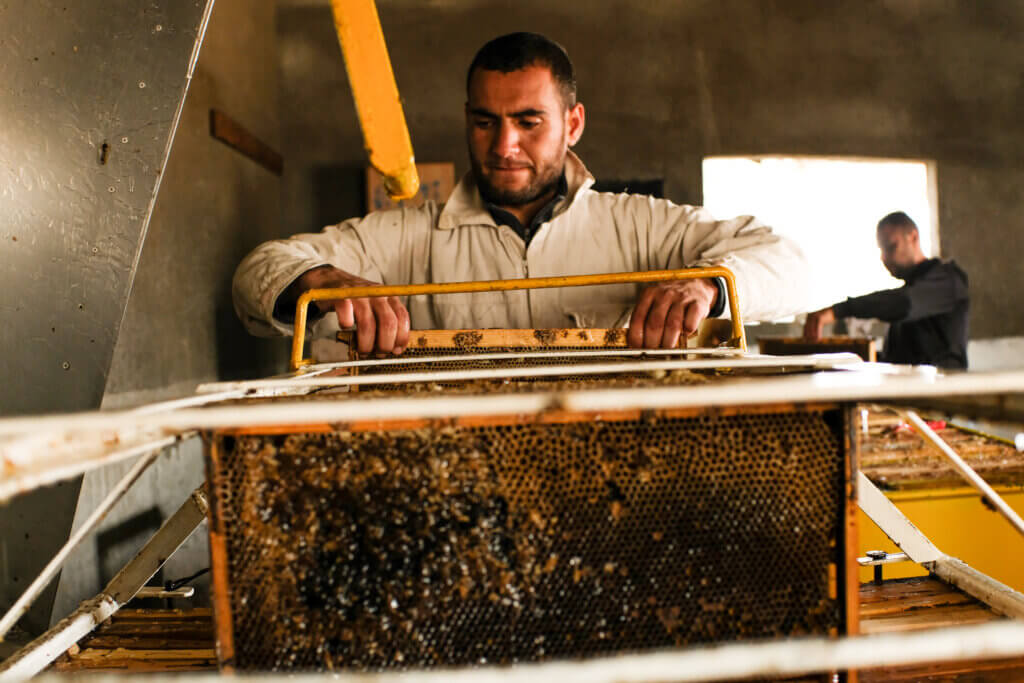
But…. close to the earth and to each other they remain, operating differently from the majority of people on this earth. Leaving the distractions of the modern structure of everyday life behind in place for one that humans have maintained for hundreds of years. A skilled father transfers skill to the child who then does the same for their child, and it continues. This way of life remains clear and protects itself from the dilutions of modern distractions, expectations, and pressures.

Such a traditional family dynamic manages to survive ever so closely to the disturbing reality, simply pinned between occupier and the occupied, reinforced in every gaze they take whenever they look over in the distance, capturing a glimpse of the border that confronts them with every turn of the pupil noticing the sight of the Erez crossing, and the racist separation wall surrounding them, constantly reminding them of their limited freedom.
So the people may not be free to go as they please, but the bees are as free as the birds of the sky. Together they continue to live and together they continue to thrive, against the odds, as always is the case here, in Gaza.
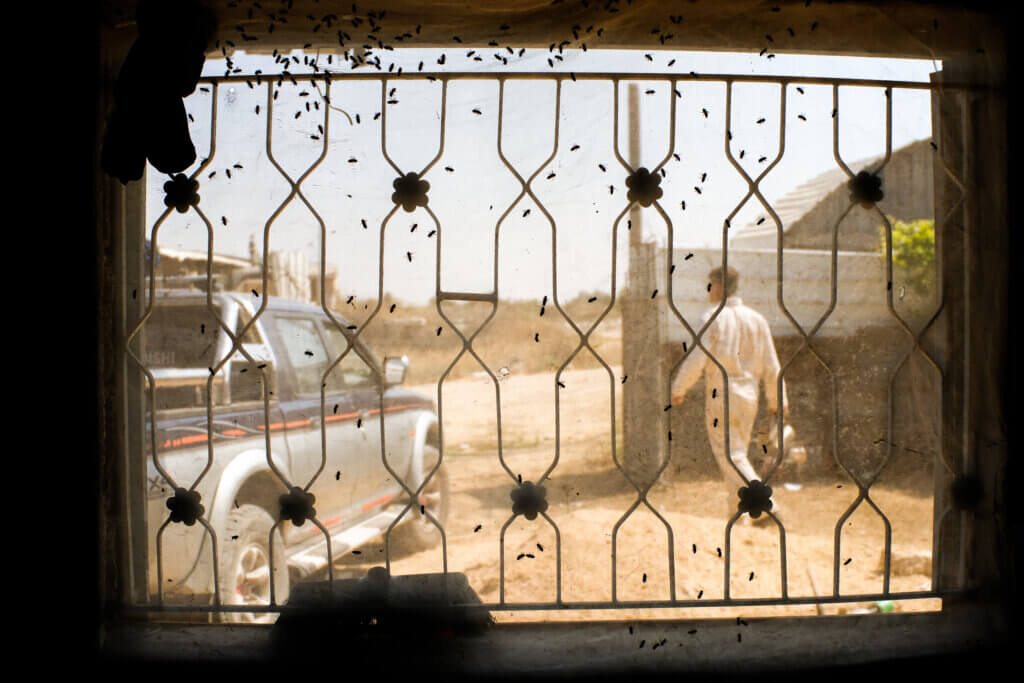
Mahmoud Nasser
Mahmoud Nasser is a documentary/street photographer born and raised in Gaza City. He was lucky to leave Gaza for Canada with his family during times of turmoil in 2008, but even luckier to see himself back in even worse times in 2021 after nearly 13 years of living abroad. His love for photography has seen him back in a place where many are literally dying to leave at the drop of a dime.
